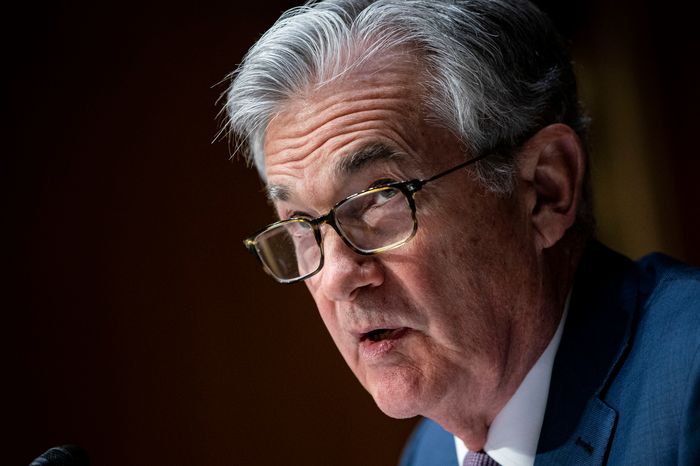How Vietnam handles the FED's high interest rates
While the Fed has been focused on fighting inflation, Vietnam needs to boost GDP growth. If we haven't accomplished this aim yet, monetary policy must remain unchanged.

The FED kept its benchmark interest rate steady at its most recent meeting
>> Interest rates could keep going down this year.
According to some analysts, the FED's latest actions will have minimal influence on Vietnam, thus we need to look more closely at the domestic economy. However, this does not imply we should no longer pay attention to the Fed's actions.
The FED kept its benchmark interest rate steady at its most recent meeting, indicating that it is easing its fight against inflation as price pressures have lessened.
The Fed's members also indicated that they intend to hike rates again this year and that their benchmark rate will remain higher in 2024 than most economists predicted.
However, as their most recent policy meeting concluded, the Fed's 19 members expressed greater confidence that they will be able to lower inflation to their 2% objective without inflicting the catastrophic recession that many analysts had predicted. It's a rosy scenario known among economists as a "soft landing."
Chair Jerome Powell stressed at a press conference that the FED still wants more confidence from future economic data that inflation is on a sustained path back to its target level. However, he said that the Fed is nearing the conclusion of its rate-hiking cycle and that a gentle landing is possible. "We believe we're getting close to our destination. A gentle landing is a main goal, according to Powell. "That's what we've been aiming for all along."
Although oil prices fell immediately after the FOMC meeting, this was only a short-term move for 1-2 sessions, so the FED raised the issue that when the economy is still healthy and prices are still rising, the goal of controlling inflation remains and the FED continues to tighten policy.
According to Mr. Nguyen Minh Tuan, CEO of AFA Capital, "looking back at the Vietnamese economy in October 2022, GDP in 3Q22 grew by 8%, and inflation was also very high." To combat inflation, the State Bank of Vietnam (SBV) hiked policy rates twice in a row in October and November. In our opinion, when the SBV must adopt a strategic aim to control, they must be steadfast in that goal. The Fed is currently focused on managing inflation in the context of this inflation originating from outside sources, notably rising raw material costs."
Recently, S&P Global's inflation outlook study stressed that global inflation will not fall instantly, but will fall gradually. However, there is a new component in Asia-Pacific that is in the easing cycle, including Japan, China, and even Vietnam, so Asia's inflation would rise marginally. In terms of real GDP growth in 2023-2024, Europe is the lowest area, and it will continue to suffer.
>> What do the FED's messages mean?
"In the case of Vietnam, we completely agree with the OECD's prediction that GDP growth will be 4.9% in 2023 and 5.9% in 2024." According to the World Bank's August 2023 statement, Vietnam's GDP growth will be 4.7% in 2023, 5.5% in 2024, and 6% in 2025," stated Mr. Nguyen Minh Tuan.
While the Fed's priority is to combat inflation, Mr. Nguyen Minh Tuan believes that Vietnam also requires strategies to increase GDP. If we haven't accomplished this aim yet, monetary policy must remain unchanged.
"Looking at the views of central bank members will give us an idea of the future of interest rates, inflation, and GDP growth, from which we can make appropriate decisions," Mr. Nguyen Minh Tuan explained.
Regarding the interest rate outloojk, according to VNDirect, lending interest rates may continue to fall in the coming months as commercial banks' capital costs fall as a result of: (1) the impact of the SBV's policy rate cut in 6M23 and (2) the SBV issuing Circular 02/2023/TT-NNNN allowing for the extension of provision for bad debts. Lending interest rates were predicted to fall by 100-150 basis points in the last months of 2023, which would be the primary driving force behind the revival of private consumption and investment.
"We believe the SBV will temporarily stop lowering policy rates until at least the first half of 2024 because it needs to balance the goals of macroeconomic stability and GDP growth in the context of increasing exchange rate and inflation pressures," VNDirect stated.








